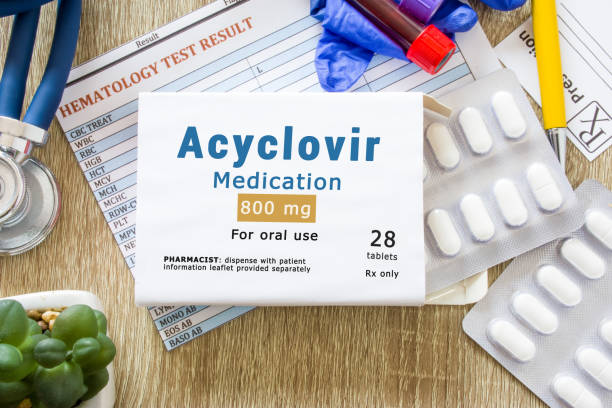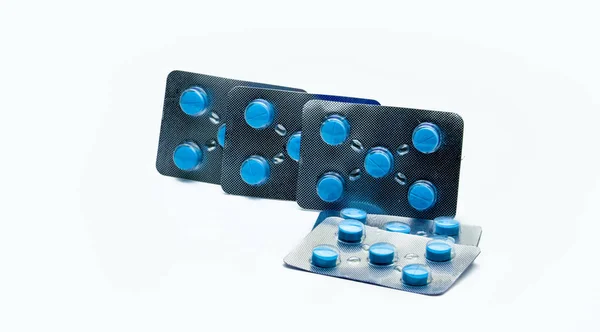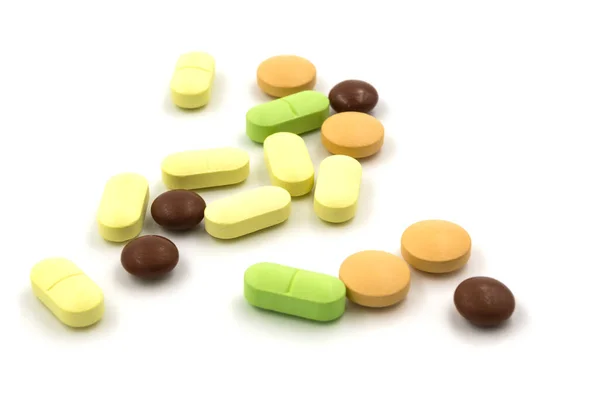FDA-approved Acyclovir medication is a guanosine analog that is commonly used to treat herpes simplex virus, varicella zoster and herpes zoster. Acyclovir is the generic name of this drug and it is sold under different brand names such as Zovirax, Xerese and Sitavig. It is a prescription-only drug.
Indications for Antiviral Drug Acyclovir

Acyclovir oral tablets, suspensions and capsules are indicated for the treatment of genital herpes, herpes zoster and chickenpox. Acyclovir topical cream is indicated for the treatment of recurrent herpes labilais in patients (immunocompetent) aged 12 years and older.
Acyclovir topical ointment is indicated for the treatment of initial genital herpes infections and constrained uncomplicated mucocutaneous herpes simplex in immunocompromised patients.
Acyclovir cream with hydrocortisone is indicated for the treatment of frequent herpes labialis and to reduce the lesion healing period in patients aged 6 years and older. Acyclovir buccal tablets are indicated treatment for recurrent herpes labialis. Acyclovir ophthalmic ointment is indicated for the treatment of acute herpetic keratitis.
Why Acyclovir is Prescribed And How It Works Against Herpes Virus
Acyclovir treat infections caused by herpes viruses. Herpes infections are quite common. Herpes indicates a group of viruses that causes various herpes infections such as genital herpes, cold sores, encephalitis and shingles.
Genital Herpes
Genital herpes is a sexually transmitted disease so any sexually active person can acquire the infection and spread it to others as well. Genital herpes is caused by herpes simplex virus type 1 and herpes simplex virus type 2. Acyclovir is used to prevent outbreaks of genital herpes.
Most patients who acquire may not know that they have this infection because its symptoms are visible days after exposure. Usually, symptoms of genital herpes infection include flu-like symptoms (body aches, fever, swollen glands), blisters, rash, and sores in the genital area with or without itching and pain. These blisters can pop up causing painful sores.
Shingles And Chicken Pox
Shingles and chicken pox are caused by herpes virus but it is not the same virus that causes genital herpes. Common symptoms of shingles and chicken pox are rash usually with pain.
Acyclovir is not the complete cure for herpes infections, it is an antiviral medication that helps ease and decrease the symptoms. Acyclovir does not kill herpes infection but paralyses it which relieves the symptoms.
Acyclovir is also used for treating genital herpes outbreaks. It helps treat pain associated with genital herpes outbreaks after the sores heal. In patients with frequent outbreaks, it is used to reduce future episodes. Acyclovir intermittent treatment is prescribed for recurrence.
Acyclovir reduces the length and severity of these outbreaks. It allows the rapid healing of sores, prevents new sore formation and decreases associated pain and itching. Moreover, in patients with a weakened immune system, Acyclovir can lessen the risk of the virus spreading to other body parts and developing serious infections.
Sometimes Acyclovir is also used for the treatment of eczema herpeticum. It is a skin infection caused by herpes virus. Acyclovir medication is used for treatment and prevention of herpes infections of mouth, nose, eyes, skin in patienrs suffering from human immunodeficiency virus and oral hairy leukoplakia.
Before Using Acyclovir For Genital Herpes Or Other Herpes Infections

Never use this drug if you are allergic to Acyclovir, other ingredients of this drug or Vlacyclovir. Patients who are allergic to milk proteins should not use Acyclovir buccal tablets.
Inform your doctor if you are pregnant or breastfeeding your baby. Herpes infection can be passed from mother to child during childbirth if the mother has genital lesions. It is extremely important to prevent herpes lesions during pregnancy. While taking this drug, it may not be safe to breastfeed your baby so talk to your doctor.
Acyclovir should not be prescribed and given to pediatric patients younger than 2 years of age. Tell your doctor if have or ever had kidney disease, a weak immune system because of using certain medications or a serious disease.
Take Your Acyclovir Medication Properly
Take Acyclovir oral medication (tablets, capsules or suspension) by mouth with or without food as recommended by your healthcare provider. Usually, this medication is suggested to take 2-5 times a day. While using this drug, drink plenty of fluids and water to maintain adequate hydration.
If your doctor has prescribed Acyclovir oral suspension, shake the medicine bottle every time you use it. Measure the dose carefully using the measuring device that comes with the bottle. Do not use regular spoons to ensure the correct dose of the medicine.
If your doctor has prescribed you Acyclovir buccal tablets, do not chew, crush or swallow them. Put the flat side of the buccal tablet against the upper gum on the side of the mouth gently as the cold sore. Let the tablet dissolve inside your mouth. You can eat and drink normally while the Acyclovir buccal tablet is placed inside your mouth.
Acyclovir dosage depends on the severity of the condition and response to the treatment. In pediatric patients, the dosage depends on the body weight. To get the maximum results of this drug start the treatment at the earliest symptom of an outbreak or recurrence chronic suppression.
Take Acyclovir precisely as directed on the prescription label. Do not use it in smaller or larger amounts than recommended by your doctor. Stick to the instructions given by your doctor to avoid any complications.
Take this medicine for the prescribed length even if your symptoms improve within a few days. Skipping your scheduled doses can put you at risk of becoming resistant to the medication.
If you missed taking a dose by mistake, take is as soon as you get the know about the missed dose. If you remenber when it is the time for your next dose, skip the missed dose and take the next scheduled dose. Never take two doses together.
Acyclovir Interactions (Drug Interactions)

Acyclovir interact with various drugs. Drug interactions may alter the way your medications work against your infection or put you at risk of experiencing serious adverse reactions. This blog may not contain all possible drug interactions so always talk to your doctor about drug interactions before starting any medication.
Some medicines may interact with antiviral medications including Acyclovir tablets, capsules and liquid and influence the way it work. Topical Acyclovir (cream) is less likely to interact with other drugs. Acyclovir has moderate interactions with around 28 different medicines and mild interactions with around 65 various medicines. Always tell your doctor about any prescription or non-prescription medicines you are using before taking this drug.
Acyclovir interacts with other medications that may cause kidney problems including nonsteroidal anti-inflammatory drugs such as naproxen and ibuprofen. Acyclovir is quite similar to Valacyclovir so do not use both medications together.
Tell your healthcare provider if you are taking medications including Cimetidine (for stomach ulcers), Mycophenolate mofetil (prescribed after organ transplants), Probenecid (for gout), Theophylline or Aminophylline (for asthma).
when Acyclovir is combined with certain drugs, they may increase Acyclovir plasma concentrations. For instance Cimetidine and Probenecid when combined with Acyclovir, these drugs increase the area under the curve of Acyclovir and reduce Acyclovir renal clearance.
Serious Drug Interactions
Some drugs interact with Acyclovir and cause serious drug interactions with Acyclovir include Amphotericin B deoxycholate, Bacitracin, Cidofovir, Neomycin PO, oral Probenecid, Talimogene laherparepvec.
Some medications that require close monitoring when taken with Acyclovir include Amikacin, Amoxicillin, Capreomycin, Carboplatin, Cwphaloridine, Cisplatin, Colistin, Cyclosporine, Tenofovir DF, Emtricitabine, Gentamicin, Iversol, Mycophenolate, Oxaliplatin, Peramivir, Pivmecillinam, Polymyxin B, Probenecid, Streptozocin, Tacrolimus, Teicoplanin, Temocillin, Ticarcillin, Tobramycin, Ublituximab.
Mild Drug Interactions
Minor interactions with Acyclovir include Acemetacin, Adefovir, Aminohippurate sodium, Aspirin, Bendroflumethiazide, Cefadroxil, Cefamandole, Cefpirome, Chlorothiazide, Cyclopenthiazide, Diclofenac, Diflunisal, Etodolac, Fenoprofen, Foscarnet, Ganciclovir, Hydrochlorothiazide, Ibuprofen, Ketoprofen, Meclofenamate, Mefenamic acid, Naproxen, Streptomycin, Tolfenamic acid, Valganciclovir, Vancomycin.
There is not adequate information about mixing between Acyclovir and herbal remedies or supplements. Make sure you tell your doctor about any herbal products you are using before starting with Acyclovir treatment.
Studies suggest a possible interaction between Acyclovir and antiepileptic drugs phenytoin and valproic acid. In a pediatric patient receiving these drugs when Acyclovir was given for 6 days, it reduced the plasma concentrations of PHT and VPA to subtherapeutic values.
It almost worsened the clinical status and electroencephalographic recordings noticed in this patient. It is suggested that the interaction happens at the gastrointestinal level with a decreased oral bioavailability of PHT and VPA during antiviral treatment.
Warnings And Precautions While Taking Acyclovir
Do not take this drug if you are allergic to Acyclovir or any of its ingredients. Keep all the medicines including Acyclovir out of the reach of children. In case of overdose seek medical help immediately or contact a local poison control center.
Cautions You Must Take
- Avoid rapid infusion of Acyclovir because of the risk of renal damage.
- In immunocompromised patients and patients with renal impairment treatment use this medicine with caution. Dose adjustment based on the dosage form renal impairment may be required.
- Try to begin with Acyclovir treatment within 24 hours of the first symptoms or appearance of the rash.
- Use this drug with caution in patients taking nephrotoxic drugs.
- If you are under Acyclovir therapy (oral or intravenous) stay well hydrated.
Pregnancy And Breastfeeding
Acyclovir can be used during pregnancy. Animal studies have not shown any risks however human studies are not available. Acyclovir enters the breastmilk so it should be used carefully while breastfeeding. Make sure you tell your doctor if you are pregnant or breastfeeding and discuss the advantages and possible risks of this drug.
What You Need To Watch During Acyclovir Treatment
Make sure you inform your healthcare provider if your symptoms are not improving even after taking the medication. Acyclovir works best when you take it as soon as you notice the earliest symptom or cold sore appears.
If you are taking Acyclovir, you can still transmit shingles, genital herpes or chicken pox to other people. Avoid contact with other people as suggested by your doctor. Genital herpes is a sexually transmitted disease so avoid having sexual contact with your partner or ask your healthcare professional how you can prevent spreading infection to your sexual partner.
Possible Allergic Reactions or Adverse Effects
If you experience an allergic reaction after taking this medicine report to your doctor immediately. Allergic reactions include skin rash, hives, itching, and swelling of lips, tongue, throat or face.
Common side effects of Acyclovir include nausea, vomiting, upset stomach, abdominal pain, diarrhoea, and headache. These side effects are mild and usually, patients do not need medical attention.
Severe side effects are very uncommon. Serious side effects of this drug include hallucinations, confusion, seizures, elevated transaminase levels,
kidney injury and mouth pain (when using a buccal tablet). If you experience any of these adverse effects get medical help or consult healthcare professionals.
What To Avoid While Taking Acyclovir?
If you are using buccal tablets avoid chewing gum, brushing your teeth and wearing your upper denture when the buccal tablet is in your mouth. You can drink and eat normally.
Herpes infections are transmittable so you can infect other people even while you are under treatment. Avoid contact with other people and wash your hands regularly to avoid spreading the infection to other people.
Taking Acyclovir does not prevent you from transmitting genital herpes infection to your sexual partner. Avoid sexual contact if you have active lesions or after you notice the initial symptoms of an outbreak. You can spread genital herpes through viral shedding from your skin even if you have no visible symptoms.
